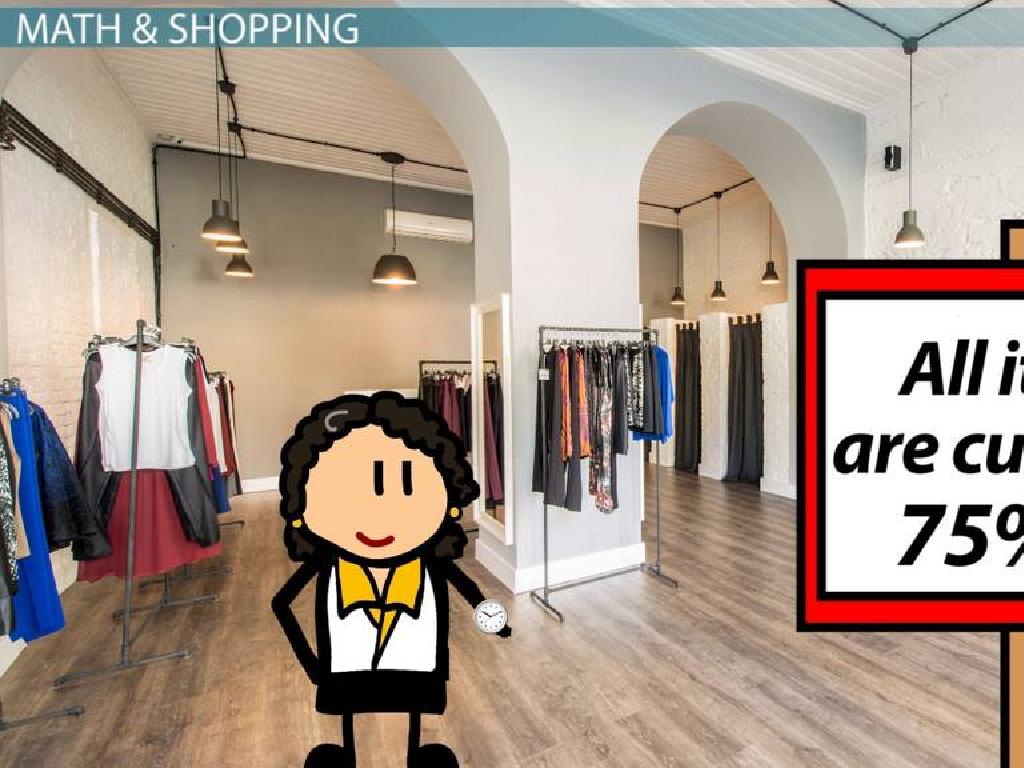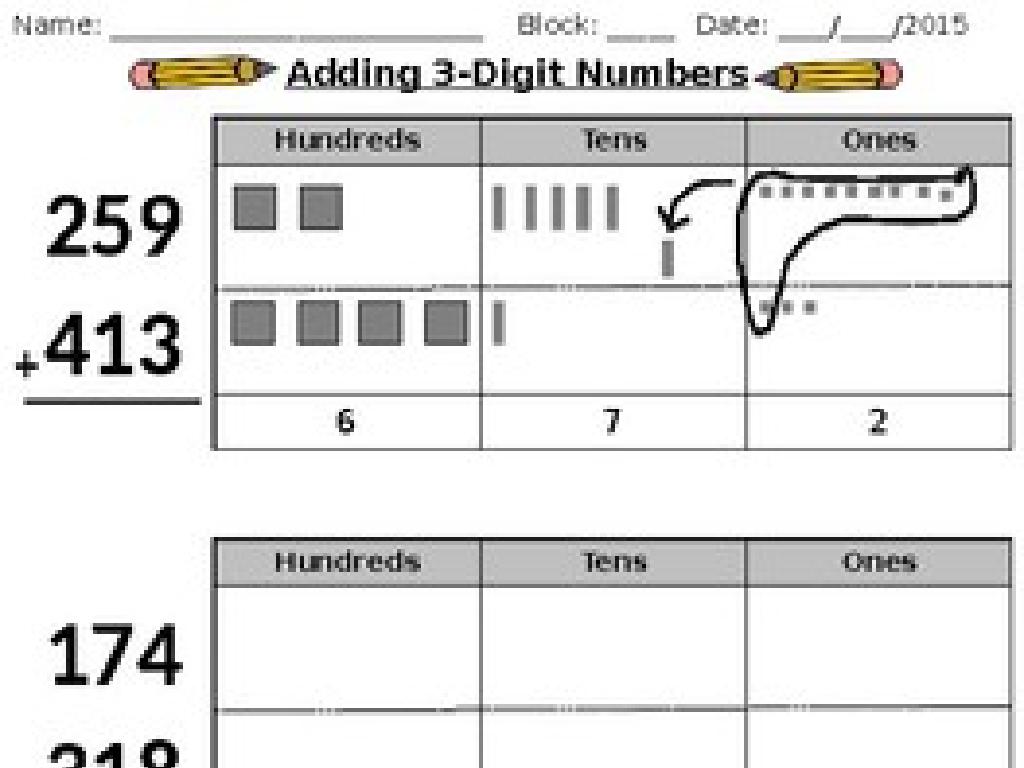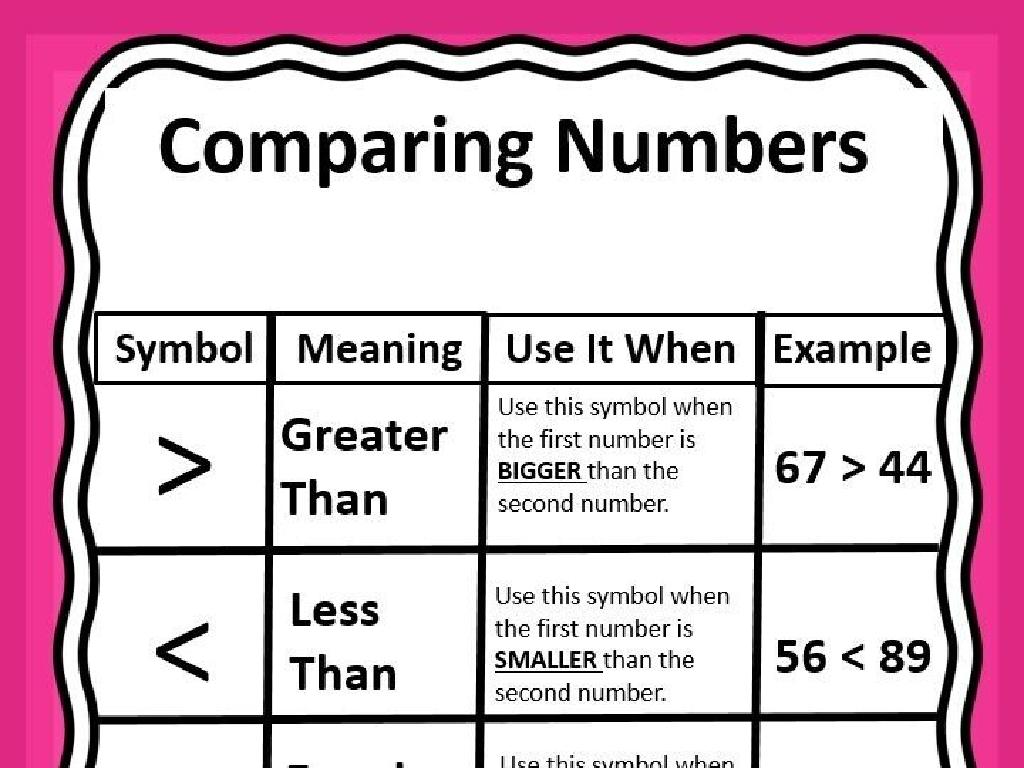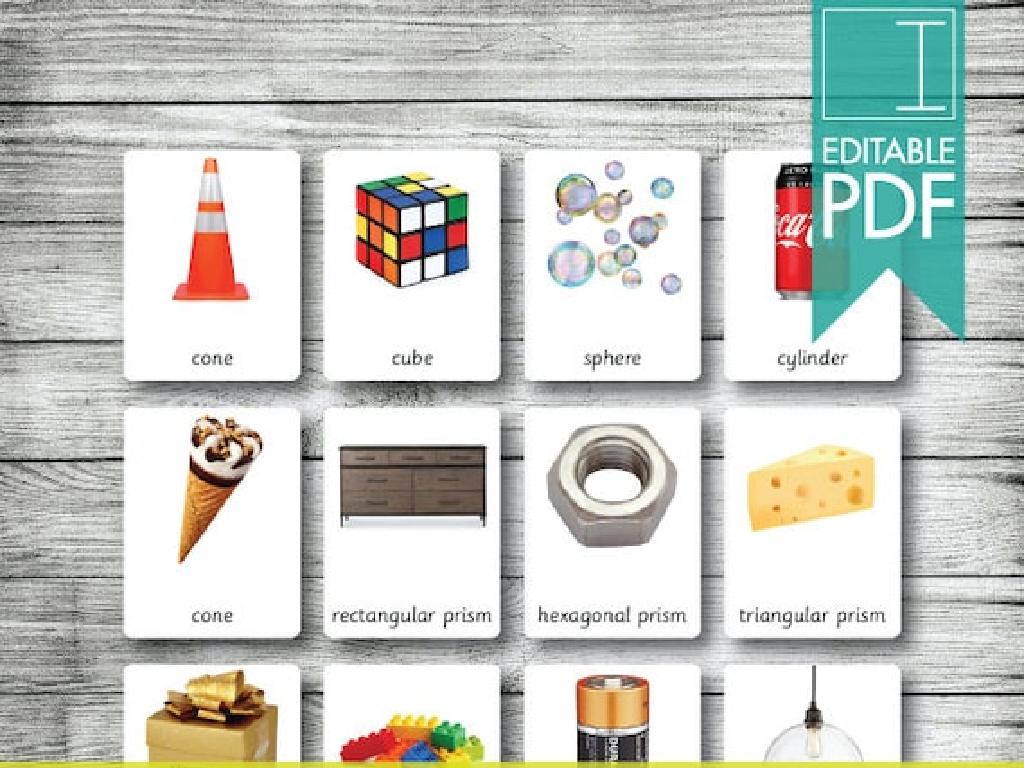Identify The Experimental Question
Subject: Science
Grade: Eighth grade
Topic: Designing Experiments
Please LOG IN to download the presentation. Access is available to registered users only.
View More Content
Identifying the Experimental Question
– Grasp the Scientific Method
– A series of steps for scientific discovery
– Focus: The Experimental Question
– It guides the direction of your experiment
– Significance of the question
– It narrows down the experiment’s purpose
– Crafting a clear question
– A well-defined question leads to accurate testing
|
This slide introduces the concept of the experimental question within the framework of the Scientific Method. Emphasize the importance of the Scientific Method as a foundational process in scientific inquiry. The experimental question is pivotal as it sets the stage for the entire experiment, guiding what will be tested and how. It’s crucial for students to understand that a well-crafted question is specific, measurable, and directly related to the variables in the experiment. Discuss how a clear question can help in forming a hypothesis and designing an experiment that yields conclusive data. Encourage students to think of questions that interest them and how they might design an experiment around that question.
Identifying the Experimental Question
– Define experimental question
– A question that guides the focus of a scientific experiment
– Its role in research
– It shapes the hypothesis and the direction of the study
– Characteristics of a good question
– Clear, focused, and measurable with variables
– Comparing good vs. bad questions
– ‘Does temperature affect plant growth?’ vs. ‘Are plants happy when it’s warm?’
|
An experimental question is a clear, focused question that defines the purpose of a scientific experiment. It’s crucial as it forms the basis of the hypothesis and determines the variables to be tested. A good experimental question should be specific, measurable, and directly related to the variables under investigation. For example, ‘Does temperature affect plant growth?’ is clear and measurable, unlike ‘Are plants happy when it’s warm?’ which is subjective and not directly measurable. Encourage students to think critically about how to frame their questions for clarity and scientific relevance.
Crafting a Good Experimental Question
– Specific and measurable question
– The question should target a particular variable or phenomenon that can be quantified.
– Clarity and focus are crucial
– Avoid ambiguity; the question should be straightforward and understandable.
– Must be answerable by experiment
– Ensure the question can be explored with a scientific experiment, not just through research or observation.
|
When designing an experiment, the question guiding your research is critical. It sets the stage for the entire investigation. A good experimental question needs to be specific and measurable, meaning it should target a particular variable or phenomenon that can be quantified. Clarity and focus are also essential; the question should be straightforward and understandable, avoiding any ambiguity. Lastly, the question must be one that can be answered through the process of experimentation, not just through research or observation. This slide will help students understand the importance of a well-formulated experimental question and guide them in creating their own for future experiments.
Crafting Your Experimental Question
– Begin with a broad topic
– Choose an area you’re curious about, like plant growth.
– Focus on a specific aspect
– Narrow it to something precise, such as the effect of sunlight.
– Formulate a testable question
– Your question could be, ‘How does sunlight affect plant growth?’
– Consider variables and controls
– Identify what you will change (sunlight) and what you will measure (growth rate).
|
This slide aims to guide students through the process of developing a clear and concise experimental question for their science projects. Start by encouraging them to think about a broad subject that interests them, which could be anything from environmental factors to human behavior. Then, help them narrow their focus to a specific aspect that can be explored in detail. The question they pose must be one that can be answered through experimentation, meaning it should be specific, measurable, and controllable. Discuss the importance of variables and controls in an experiment, ensuring they understand the difference between independent and dependent variables. Provide examples and encourage students to brainstorm in groups to come up with potential experimental questions.
Identifying Good Experimental Questions
– Example 1: Plant Growth
– How does sunlight affect plant growth?
– Example 2: Dissolving Rates
– How does temperature affect the rate at which sugar dissolves in water?
– Characteristics of good questions
– Clear, focused, and measurable with an experiment.
– Formulating your own questions
|
This slide presents two examples to help students understand what constitutes a good experimental question. The first example explores the effect of sunlight on plant growth, prompting students to consider variables like light intensity and exposure time. The second example looks at how temperature influences the rate at which sugar dissolves in water, introducing concepts like solubility and reaction rates. Both examples are designed to illustrate clear, focused, and measurable questions that can be tested through experiments. Encourage students to analyze why these questions are effective and guide them in formulating their own experimental questions using similar criteria. This will help them in designing their own experiments and understanding the scientific method.
Group Activity: Formulate Your Experimental Question
– Break into small groups
– Choose a topic for experimentation
– Formulate your experimental question
– Think: What are you curious about? What do you want to test?
– Prepare to present your question
– How will you explain your question’s importance?
|
This slide introduces a group activity aimed at helping students practice formulating experimental questions. Divide the class into small groups to encourage collaboration. Each group should select a topic of interest related to science, such as plant growth conditions, effects of diet on energy, etc. They will then create a clear, focused experimental question that they can investigate. Encourage them to consider variables and the relationship they want to explore. After formulating their question, each group will prepare a short presentation to explain their chosen topic, their experimental question, and why it’s an important question to ask. This activity will help students understand the importance of a well-defined experimental question in the scientific method. Provide guidance and examples of good experimental questions to help them get started.
Class Discussion: Crafting Experimental Questions
– Groups present their questions
– Class votes on question clarity
– Is the question specific and understandable?
– Engage in a feedback session
– Provide constructive criticism to improve
– Refine questions collaboratively
– Use feedback to make questions more focused
|
This slide sets the stage for an interactive class discussion where each group will present the experimental question they have formulated. The class will then vote on the clarity and focus of each question, promoting critical thinking and engagement. During the feedback session, encourage students to offer constructive criticism that can help their peers refine and improve their questions. Emphasize the importance of having a clear and focused experimental question as it guides the entire experimental process. The goal is to collaboratively improve each group’s question for a better experimental design. Prepare to facilitate the discussion, ensuring that feedback is respectful and productive.
Conclusion & Homework: Crafting Your Questions
– Recap: importance of clear questions
– Homework: create 3 experimental questions
– Think of questions that can be tested
– Choose any topic of interest
– Your questions should be specific and measurable
– Next class: Designing the Experiment
|
As we conclude today’s lesson, remember that a well-defined experimental question is crucial for a successful scientific inquiry. It guides the direction of your research and determines the relevance of your findings. For homework, I want you to think creatively and come up with three potential experimental questions on any topic that interests you. These questions should be clear, focused, and testable. In our next class, we will take these questions and begin to design experiments around them, considering variables, controls, and the scientific method. This will be an exciting opportunity to apply what you’ve learned and to start thinking like a scientist!






